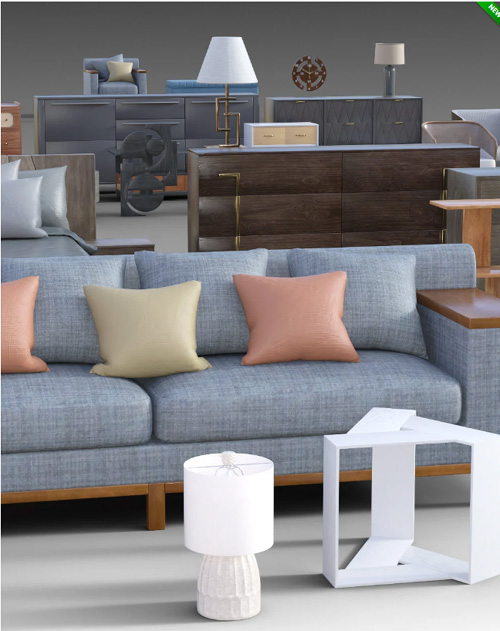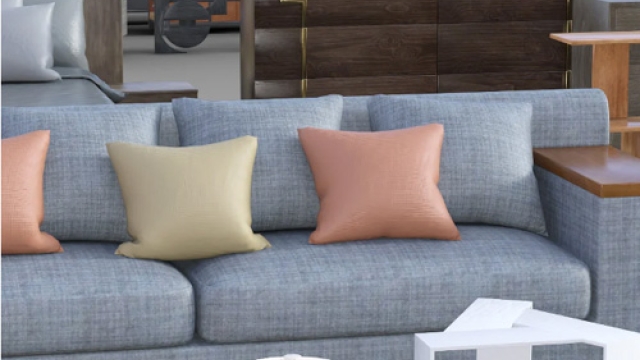
In today’s fast-paced world, our homes are more than just places to live; they are sanctuaries where we seek solace and inspiration. The right home furnishing can transform any space into a reflection of our personal style, values, and aspirations. From vibrant colors that energize a room to minimalist designs that promote tranquility, the choices we make in our furnishings can significantly impact our mood and well-being.
As we explore innovative home furnishing ideas, we will discover how creativity and functionality can coexist harmoniously. Whether you are revamping a single room or undertaking a complete home makeover, these refreshing concepts will help you infuse joy and beauty into your living space. Let’s embark on a journey to uncover solutions that not only enhance aesthetics but also enrich our daily lives.
Functional Furniture Designs
In today’s fast-paced world, functional furniture designs have become a necessity for making the most of our living spaces. These innovative pieces not only serve their primary purpose but also bring an element of style and creativity to the home. For instance, a coffee table that doubles as a storage unit helps declutter a room while providing a sleek surface for entertaining. By integrating utility into their design, modern furniture pieces encourage us to enjoy our spaces without sacrificing comfort or aesthetics.
Another trend in functional furniture is the rise of modular designs that adapt to our changing needs. Modular sofas can be reconfigured to suit different social gatherings, while wall-mounted shelves can be adjusted or expanded as your storage needs evolve. This versatility allows homeowners to personalize their environments, ensuring that every piece of furniture feels unique and tailored to their lifestyle. Such adaptability is particularly valuable in smaller homes where maximizing space is crucial.
Finally, multifunctional furniture often reflects a commitment to sustainability. Many designers are now creating pieces that serve multiple purposes or are made from recycled materials, which minimizes waste and the environmental impact of home furnishing. By choosing items that combine form and function, homeowners can create welcoming, joyful spaces while contributing to a greener planet. Embracing these designs not only transforms a space aesthetically but also infuses it with a sense of responsibility and care for our surroundings.
Color and Texture Combinations
Custom Cabinets
Choosing the right colors and textures for your home can dramatically influence the mood and feel of your space. Start by selecting a color palette that resonates with your personality and lifestyle. Soft, muted tones can create a calm and serene atmosphere, while bold hues can energize a room. Pairing warm colors like oranges and reds with cool shades such as blues and greens can create a harmonious contrast that adds depth and interest to your furnishings.
Texture plays a vital role in home furnishing. Incorporating various materials can elevate your interior design and create tactile experiences. For example, mixing smooth surfaces like glass and metal with more rustic textures such as wood and textiles introduces a dynamic element to your decor. This interplay can make your space feel layered and rich, inviting guests to explore each detail and find joy in the different sensations.
Lastly, consider the balance between color and texture in your furnishings. A vividly colored sofa may stand out beautifully against neutral walls, but adding textured cushions or throws can soften the look and enhance comfort. Similarly, a textured rug can ground a room filled with colorful accents, providing a cohesive visual anchor. By thoughtfully combining colors and textures, you can transform your home into a joyful and inviting sanctuary that truly reflects your individual style.
Sustainable Furnishing Solutions
As more people become aware of environmental impacts, sustainable furnishing solutions are gaining popularity. Choosing furniture made from reclaimed or responsibly sourced materials can significantly reduce your carbon footprint. Look for options that use renewable resources, such as bamboo, or manufacturers who prioritize sustainable forestry practices. By making these choices, you not only enhance your living space but also contribute positively to the planet.
Another approach to sustainable furnishing is opting for second-hand or vintage pieces. Thrift stores, online marketplaces, and estate sales often house unique items that carry history and character. By giving these furnishings a new life, you prevent them from entering landfills while adding a touch of individuality to your home decor. Restoring or upcycling these finds can also be a rewarding project that allows for creativity and personalization.
Lastly, consider investing in timeless designs that won’t go out of style. These pieces are often made with higher quality materials, ensuring longevity and durability. Instead of constantly replacing cheaper, trendy items, a focus on classic styles leads to minimal waste and a more cohesive aesthetic. Incorporating sustainable furnishing solutions not only supports eco-friendly practices but also creates a joyful and purposeful living environment.
Maximizing Small Spaces
When dealing with limited square footage, the key to creating an inviting atmosphere is choosing multifunctional furniture. Pieces like a sofa bed or a coffee table with storage can serve double duty, saving valuable space while maintaining comfort and style. Consider also movable furniture, such as nesting tables or ottomans, which can easily be rearranged to accommodate guests or activities without feeling cluttered.
Incorporating vertical elements into your design is another effective strategy. Wall-mounted shelves, tall bookcases, and hooks can draw the eye upward, making the space feel larger and more open. Hanging plants or artwork at varying heights can add visual interest and a personal touch, while also utilizing often-overlooked wall areas. This approach enhances both organization and aesthetics, transforming every inch into a functional part of your home.
Lastly, use light colors and mirrors to create an illusion of spaciousness. Soft hues on walls and furnishings can make a small room feel airy and bright. Strategically placing mirrors can reflect light and views, further expanding the perceived size of the room. These simple yet impactful adjustments help maximize your small space, allowing for a joyful and functional living environment that feels much larger than it truly is.
